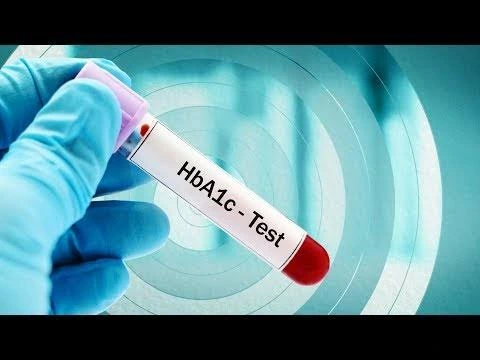The HbA1c test shows your average blood sugar levels over 2–3 months. Learn why this test is essential for diagnosing and managing diabetes and preventing complications.
Managing diabetes involves more than just checking your blood sugar each day. The haemoglobin A1c (HbA1c) test provides a bigger picture by measuring your average blood glucose levels over the past two to three months. This test is a key part of diabetes care, helping you and your healthcare provider understand how well your treatment plan is working. Whether you have diabetes, prediabetes, or are at risk, regular HbA1c testing supports early intervention, helps prevent complications, and guides long-term health decisions.
Understanding Diabetes and Blood Sugar Control
Diabetes is a chronic condition that affects how your body regulates blood sugar (glucose), the main source of energy for your cells. It occurs when the body either doesn’t produce enough insulin (Type 1 diabetes), doesn’t use insulin properly (Type 2 diabetes), or develops temporary insulin resistance during pregnancy (gestational diabetes).
Insulin is a hormone that helps move glucose from the bloodstream into cells. When insulin is lacking or not working effectively, glucose builds up in the blood instead of being used for energy. Over time, high blood sugar levels can damage vital organs such as the heart, kidneys, eyes, and nerves.
Maintaining healthy blood sugar levels is key to preventing complications and supporting long-term health. Whether you have diabetes or are at risk, understanding how blood sugar works is an important first step in managing the condition effectively.
What Is HbA1c? Your Long-Term Blood Sugar Indicator
HbA1c, also known as Glycated Haemoglobin or A1c, measures the percentage of haemoglobin in your red blood cells that has glucose (sugar) attached to it. Haemoglobin is the protein that carries oxygen throughout your body.
Why Is This Important?
When glucose circulates in your blood, some of it naturally binds to haemoglobin. The more glucose in your bloodstream, the more haemoglobin becomes “glycated.” Since red blood cells live for about 2 to 3 months, the HbA1c test reflects your average blood sugar levels over that time period.
How is the HbA1c Test Different From Daily Blood Sugar Checks?
This test is essential for diagnosing diabetes, monitoring treatment effectiveness, and reducing the risk of long-term complications.
- Long-Term Insight: Unlike finger-prick tests that show your blood sugar at a single moment, the HbA1c test gives a broader view of your glucose control over several weeks.
- Stable and Reliable: It’s not affected by short-term changes like meals, stress, or exercise, making it a more consistent measure of how well your diabetes management plan is working.
Why Monitoring HbA1c is Crucial for Diabetes Management
Regular HbA1c testing plays a central role in managing diabetes effectively. Here’s why it matters:
- Tracks Long-Term Blood Sugar Control: Unlike daily glucose checks that reflect short-term changes, the HbA1c test shows your average blood sugar levels over the past two to three months. This gives you and your healthcare provider a clearer picture of how well your diabetes is being managed overall.
- Assesses Risk of Complications: Higher HbA1c levels are strongly linked to complications such as kidney disease (nephropathy), nerve damage (neuropathy), eye problems (retinopathy), heart disease, and stroke. Keeping your HbA1c within target range significantly lowers these risks.
- Guides Treatment Decisions: Your HbA1c result helps your doctor evaluate whether your current treatment plan (including medications, diet, and physical activity) is working. If your levels are above target, it may be time to adjust your approach.
- Supports Motivation and Self-Management: Seeing improvements in your HbA1c can be encouraging and reinforce healthy habits. On the other hand, a higher result can highlight areas that need more attention, helping you stay on track with your goals.
- Used for Diagnosis: The HbA1c test is also used to diagnose diabetes and prediabetes:
- Below 5.7%: Normal
- 5.7% to 6.4%: Prediabetes
- 6.5% or higher (on two separate tests): Diabetes
Booking the HbA1c Test
The HbA1c test is a simple and convenient blood test. It can be performed at any time of the day and usually does not require fasting, making it easy to fit into your schedule.
Regular monitoring of HbA1c allows your healthcare provider to assess long-term blood sugar control and evaluate your cardiovascular risk, which is especially important for individuals with diabetes or those at risk. This helps guide effective treatment and lifestyle decisions.
To book your test or check the latest HbA1c test price, visit the HbA1c Test page on the Apollo 24|7 website or app.
Conclusion
Regular monitoring of your HbA1c levels is a vital part of managing diabetes effectively. It offers a clear picture of your average blood sugar over the past two to three months and helps reduce the risk of serious complications. By staying informed about your HbA1c results and working closely with your healthcare provider, you can make meaningful adjustments to your lifestyle, medication, and overall care plan. Incorporating the HbA1c test into your routine health checkups is a smart and proactive step toward better long-term health and quality of life.
ALSO READ:
Patanjali University, Patanjali Research Institute sign MoUs with 3 prestigious Indian universities





